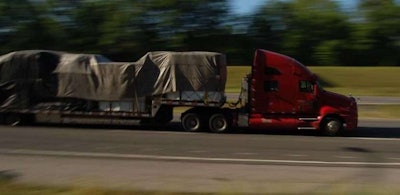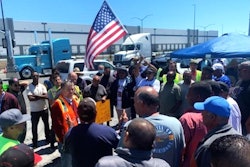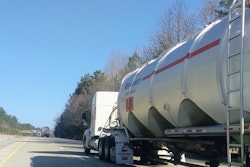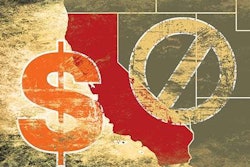
Much has been made about California and other states’ attempt to codify a so-called “ABC test” when it comes to independent contractor classification. Our latest reporting — a close look penned by James Jaillet at the threat such a test poses for owner-operators leased to California-based carriers, and leased owner-operators who are domiciled in California — analyzes views and recent developments around the issue for owner-ops.
However, some businesses that use drivers who operate company equipment in California, too, could stand to face changes to the way they pay those drivers, given the practice of paying drivers of company equipment as contractors rather than employees isn’t exactly uncommon.
I spoke with just such a driver with a California four-truck fleet recently. This particular operator’s fleet, he speculated — if the ABC test is allowed to apply to trucking in California (it remains on hold pending a court challenge) — might be forced into new responsibilities in regards to worker’s compensation and unemployment insurance, likewise to pick up its share of the self-employment tax that it today offloads on the driver, who files income taxes as a self-employed individual.
The company operator says the change that A.B. 5 would represent, forcing him into employee status, in his view, would amount to little more than added paperwork for the carrier, and some added costs that would just ultimately reduce his own income.

Others view independent contractor status for company drivers more grimly. “The reason the state is doing this,” says Overdrive reader Lynn Montry under polling on reader views around the ABC test here at OverdriveOnline.com, is that some fleets are “paying company drivers on a 1099. They are not getting workers comp insurance. They are not paying into the driver’s Social Security, medicare, or anything else. The driver has to pay all of the tax that the owner or company should be paying half of. If the driver gets in an accident and gets injured he is on his own for medical and also loses wages.”
Plenty of 1099 drivers for such carriers, some speculate, aren’t filing as self-employed individuals. Not only does such open up the company to court actions or other enforcement of tax and/or labor laws, “the driver is out all the way around,” Montry contends. Both parties in such a situation would be skirting at least half of the self-employment tax, and open to penalties. Such has application in the here and now for both support programs for the eldest in the population, of course.
But here’s the rub: Contractors who drive company equipment have rarely been safely within any gray area that may exist under more common contractor tests. States don’t need the overbroad ABC test for the independent contractor classification to tamp down on improperly classified 1099 drivers, notes Joe Rajkovacz of the Western States Trucking Association. Former owner-operator Rajkovacz contends that in all but the relative few situations where a company driver sets him/herself up as a business to lease their driving service, operators of company equipment will fail even the weakest of independent contractor tests, “the IRS’s 20-factor test – [1099’ing company drivers] won’t pass that test, considered by many to be the weakest of them all,” often the default in states that haven’t tightened up contractor rules.
The broadly applied cudgel of the ABC test, most in Overdrive‘s audience view, is thus a step too far, an “unfair hammer” to heretofore legit contractors, to paraphrase Southern California-based small fleet owner Jimmy Nevarez from a past podcast.
Want to cut the skirting of self-employment tax, enhance employee protections offered by workers comp and unemployment insurance required of bona fide employers? Enforcing the previous, more nuanced tests on the books should do that job just as well as any ABC test.
“We don’t need more laws” like A.B. 5, Rajkovacz says. “We need the laws that are on the books to be enforced. Why keep passing more laws when you don’t enforce what you have.”
He also cautions carriers 1099’ing company drivers: “Just take the taxing authorities out of it and consider this: all it would really take is for one guy to apply for unemployment” after being let go. “It will initiate an investigation of your business,” he says, in any state with even slightly aggressive due diligence personnel. “It will be a ton of bricks that comes out and lands on your business — you’ll lose everything you’ve built. All it really takes is one driver complaint, or a guy injured on the job” with a worker’s comp claim.
As he suggests for small fleet owners, the risk’s not worth it.











